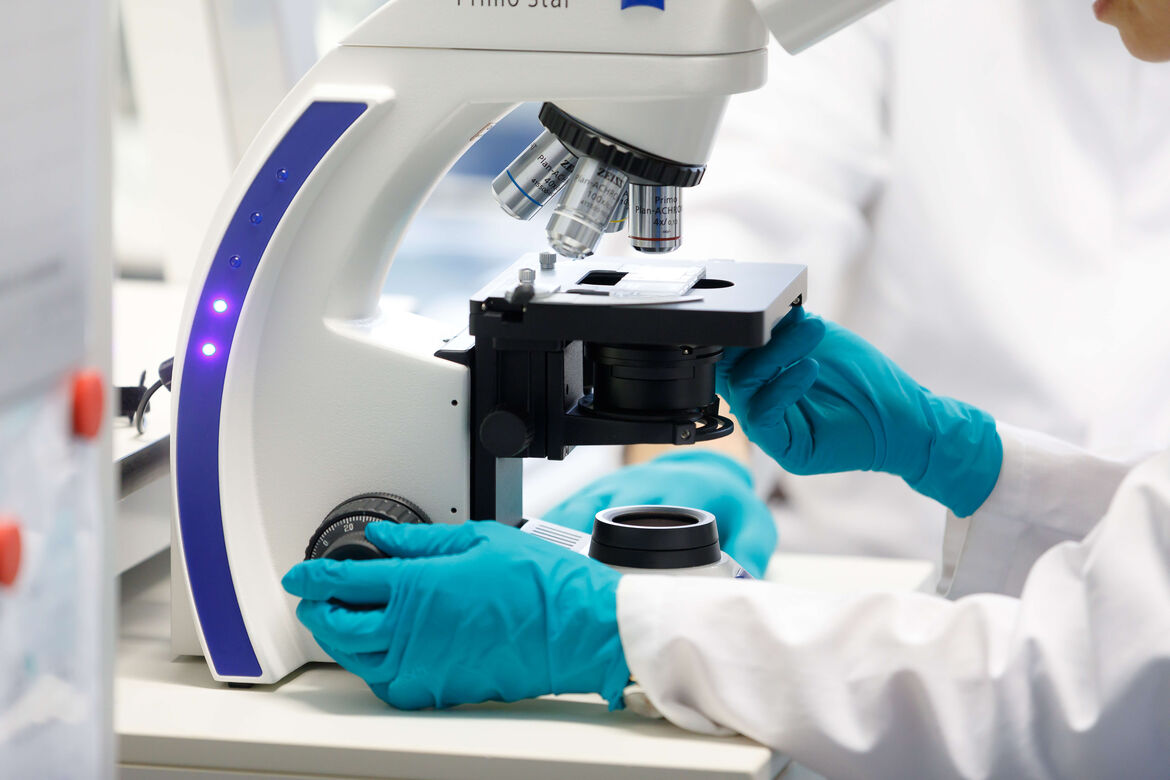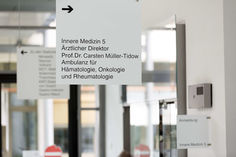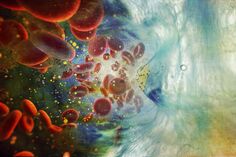
Hoetker Lab – Max Eder Research Group
Targeting the basis of cell fate corruption in cancer
INTRODUCTION
The regulation of cell identity is a cornerstone for the proper differentiation and functionality of tissues. Perturbations in this process have far-reaching consequences, ranging from impaired tissue integrity to the development of diseases such as cancer.
During malignant transformation, the epigenetic safeguards that uphold physiological cell identity must be overcome, leading to a rewiring of the epigenome that sustains a proliferative, malignant fate. In our lab, we focus on understanding the mechanisms underlying this corruption of cell identity. Through our research, we aim to uncover the molecular underpinnings of this process and to open new therapeutic avenues for cancer therapy.
Our focus lies in understanding how alterations in epigenetic modifications, chromatin interaction, and gene expression converge to disrupt cell fate in hematologic malignancies. In these diseases, dysregulation, gene fusion, and mutation of epigenetic regulators is particularly widespread, affecting not only the protein-coding genome but also regulatory elements scattered throughout non-coding regions. These regulatory elements play a pivotal role in orchestrating the transcription of cell fate-instructive programs, making their dysregulation a common hallmark of cancer that remains poorly understood. Consequently, we aim to understand their epigenetic rewiring in disease and elucidate their functional role in cancer development and treatment resistance.
To achieve this goal, we employ a diverse array of techniques, including mapping epigenetic modifications and 3D chromatin interactions, single-cell transcriptomics and epigenetics, CRISPR-based technologies, iPSC-based disease modeling, and analysis of patient samples. These methodologies allow us an unprecedented perspective on the epigenetic changes underlying malignancy and enable us to effectively probe the functional significance of individual alterations.
Group Leader
Dr. med. Michael Hötker
Group Leader
(Klinik für Hämatologie, Onkologie, Rheumatologie)
Schwerpunkt
Hämatologie und Onkologie, Epigenetische Grundlagen hämatologischer Erkrankungen, Stammzellbiologie
Team

Recruiting students and postdocs eager to understand and reverse cell fate corruption in disease! Interested?
Reach out to michael.hoetker(at)med.uni-heidelberg.de with your CV and references.

CURRENT PROJECTS

Dissecting the epigenetic safeguards of AML
Malignantly transformed cells depend on a hijacked epigenetic machinery to uphold their altered cell identity and proliferation. In this project, we investigate these epigenetic barriers to evaluate their significance for acute myeloid leukemia (AML) cells in sustaining their leukemic fate. Despite the heterogeneity of AML, certain epigenetic regulators are frequently dysregulated, potentially representing a shared downstream vulnerability in several subtypes. By employing targeted epigenetic perturbation, we aim to dissect the processes underlying leukemic cell fate disruption and identify druggable targets through mechanistic analysis.

Targeting enhancers in lymphoma
While extensive research identified genetic alterations and coding mutations involved in lymphomagenesis, the non-coding genome and epigenome have not been explored to the same extent, largely due to technical and methodological challenges. Increasing evidence highlights dysregulation of regulatory elements such as enhancers and super-enhancers as key drivers of DLBCL. Additionally, disruption of regulatory networks in the non-coding genome represents a key downstream event for several common lymphomagenesis pathways. Our current project therefore aims to gain insight into the epigenetic mechanisms of lymphomagenesis as well as therapy resistance and relapse, and to target the non-coding genome as a new therapeutic avenue for DLBCL.

Generating therapeutic vulnerabilities through epigenetic therapy
Epigenetic pathways are closely interconnected, and their targeted modulation can significantly influence cellular signal integration. In this project, we probe the role of specific epigenetic regulators in conferring resistance towards classical chemotherapy and emerging compounds. We utilize comprehensive drug screening to evaluate their effects, whether beneficial or detrimental. By uncovering how targeted modulation of specific epigenetic pathways influences treatment outcomes and by understanding the mechanistic processes involved, we aim to pave the way for more informed and effective therapeutic combinations.
KEY PUBLICATIONS
Hoetker, MS et al. H3K36 methylation maintains cell identity by regulating opposing lineage programmes. Nat Cell Biol 25, 1121–1134 (2023). https://doi.org/10.1038/s41556-023-01191-z
Yagi M, …, Hoetker MS et al. Dissecting dual roles of MyoD during lineage conversion to mature myocytes and myogenic stem cells. Genes & Development 35(17-18), pp.1209-1228 (2021). https://doi.org/10.1101/gad.348678.121









